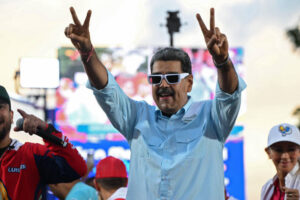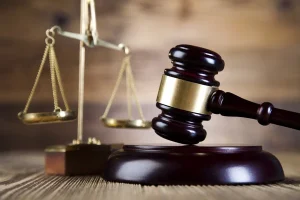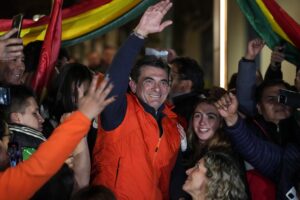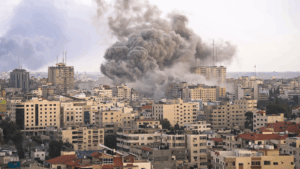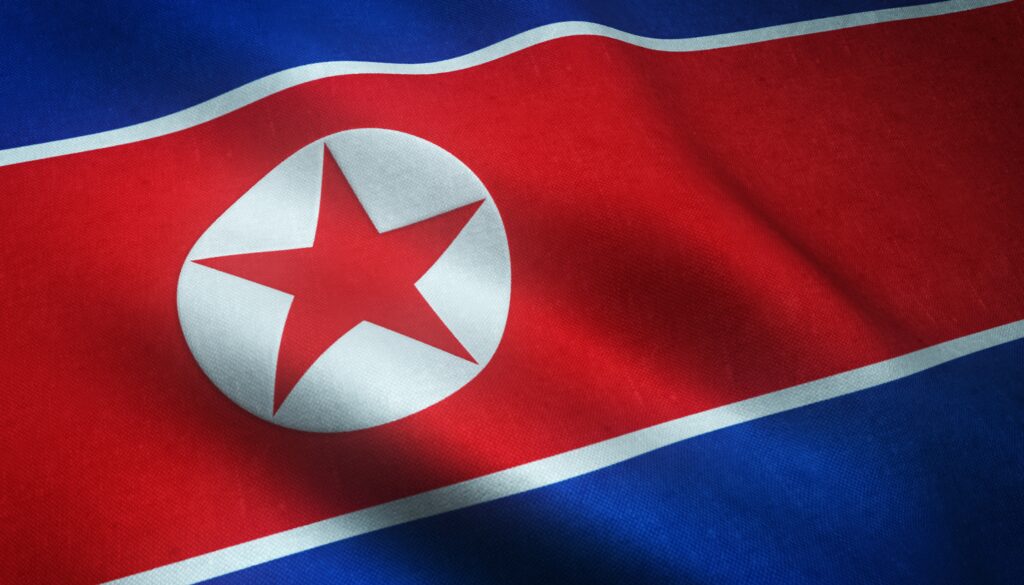The claims over the North Korean troops increased concerns by the actors of the international community such as NATO, the EU, the US, and South Korea. These concerns were built on the possibility of escalation followed by the involvement of other parties beyond Russia and Belarus. Indeed, it could risk further expansion of the battlefield.
The claim was first mentioned by Ukrainian Intelligence Services and later confirmed by other sources. The international actors have already proven the presence of these troops in the Kursk region. They signal a scenario where North Korea could become a “co-belligerent” in the war. There are believed to be around 11000 North Korean troops on the ground. However, the precise number of troops is unknown. Moreover, details such as the timing of engagement of these troops and their possible effect on the war remain scrutinized.
The Kursk region on the Russian oblast nears the Ukrainian border. It is around 500 kilometers away from the Ukrainian capital, Kyiv. The region was strategically and geopolitically important throughout history. It is mostly remembered by the Battle of Kursk. This battle represented a victory for Soviet resistance against Nazi Germany during World War II. Today, it is of high importance due to its proximity to the battle zone in Eastern Ukraine. Also, it serves as a military positioning for Russia.
North Korea was previously accused of providing military equipment such as ballistic missiles and artillery to Russia.
A Turning Point for Kremlin or Far From It?
Many political scientists and military strategists argue that there is a slight probability of these troops changing the current state of the war. Indeed, the consequence of these additional 8,000 soldiers is a drop in the ocean. This, considering the recent losses of Russian soldiers on the battlefield.
According to a report from the Institute for the Study of War (ISW) on November 1st, the daily casualty of the Russian side is above the average of 1200 soldiers. This means that the North Korean troops will work for the short-term.
On the other hand, the capability of the North Korean soldiers is recently highlighted by an Estonian official. The Commander of the Estonian Defence Intelligence Centre, Ants Kiviselg, evaluates the impact of these soldiers. He believes that they will suffer in numbers due to their incapability to combat on Ukrainian territory. Indeed the realities of the battlefield such as climate and geography should be taken in account.
From Kyiv to Pyongyang
Kyiv recently called on North Korean soldiers to surrender in a video they posted on social media. It was part of their campaign “I want to live” (Хочу жити in Ukrainian). The video in Korean language also promises to abide the rules of the Geneva Conventions on the treatment of the surrendered North Korean soldiers. They guarantee access to food and medical care. The project “I want to live” was launched in September 2022 by Ukraine. It targets Russian and Belarussian soldiers who want to surrender voluntarily via the website. This website offers hotlines and several ways to contact the project to initiate the surrender. It also gives instructions on how to do it.
Reactions of the International Community
The latest developments are also observed closely on the international level.
NATO chief, Mark Rutte, confirmed the presence of North Korean troops and the deployment of North Korean military units in the Kursk region. He called on Pyongyang to terminate their actions. According to him, it was an escalation by the North Korean side breaching the UN Security Council resolutions and norms.
It’s Europe Calling
The presence of the North Korean troops was also highlighted during a bilateral press conference between Rutte and French President Emmanuel Macron. The conference was part of Rutte’s visit to Paris on November 12. Rutte reiterated NATO’s position. Therefore, he emphasized the collective security of the Alliance. Meanwhile, Macron declared the presence of the North Korean troops as a “serious escalation”. Within the framework of his visit, Rutte welcomed the French initiative of training and equipping an entire brigade, called “Anne Kyiv Brigade”. This brigade of 2300 Ukrainian soldiers is trained by 1500 French soldiers on French territory. The initiative was followed by an announcement during the 80th anniversary of the Normandy Landings by the French President who previously emphasized the possibility of sending troops to Ukraine.
His remarks made the headlines for weeks within the international community. Now, they seem to resonate with political actors across Europe. The Lithuanian Foreign Minister, Gabrielius Landsbergis, a prominent figure with unwavering support to Ukraine since the beginning of the Russian invasion, recently reminded Macron’s remarks speaking to Politico. He also took to social media platforms and urged Western leaders to consider sending Western troops to Ukraine.
There is a common goal of preventing the expansion of war in Europe and ensuring that Ukraine is capable of defending itself. However, the roadmaps of European leaders vary in terms of actions. While there are growing calls coming from various political actors in Europe to make sure that decisions concerning Europe’s future including its security and interests are made by Europe, there seems to be a hesitancy when it comes to actions to enshrine its strategic autonomy and its ability to defend itself without relying on any partners.
The Other Side of the Atlantic
The presence of the North Korean troops on Ukrainian soil was also highlighted during a joint press conference in “2+2” format between the US Secretary of State, Anthony Blinken, the Defense Secretary Llyod, Austin, and their South Korean counterparts on October 31st.
Blinken mentioned that the troops are not seen combatting on the field yet. However, Blinken also declared that these troops would automatically become a military target if they engaged in fighting or combat support against Ukraine. According to Blinken, the US side has already contacted China, Pyongyang’s longtime strategic partner. This effort came in attempts of China to discourage North Korea from engaging their troops and becoming a side to the conflict.
Trump in the White House
However, the re-election of Donald Trump could affect the direction of the war even before he takes office.
On its 1000th day of invasion marked today, Ukraine is still fighting against Russia’s illegal war and relies heavily on the support of its international partners and strategic allies. The US is Ukraine’s biggest supplier in terms of military aid reaching over 55.5 billion US dollars.
The fate of the US position towards Ukraine is soon to be shaped by President-elect Donal Trump. He is a critic of US support to Ukraine. Indeed, he is known for his controversial remarks on the Ukraine war. According to a report by the Washington Post, Trump already had a non-official phone call with Vladimir Putin in his private resort in Florida. The call was denied by the Kremlin. The report details that Trump also had around 70 non-official phone calls with world leaders without the support of US government interpreters and the State Department. Despite these blank spots about the nature of his talk with Vladimir Putin, the conversation is believed to be framed over Ukraine.
As a long-time defier of the established principles of American institutionalism, it was no surprise for many. Donald Trump was indicted by the Justice Department’s investigation of the Classified Documents found in his Mar-a-Lago resort in Florida. It was later dismissed by U.S District Judge Aileen Cannon appointed by himself. His blurred personal relationship with the Russian President has been highly scrutinized especially since his first election in 2016.
Trump previously claimed to end the war within a few days during his election period. He also blamed the Ukrainian side for starting the war and pointed out the territorial integrity of Ukraine which is a red line for Ukraine and its allies. That’s why the US position regarding Russian’s illegal war in Ukraine and the US support for Ukraine under Trump’s presidency evokes concern among the international community and actors.
Trump’s tumultuous relationship with the North Korean leader, the “Rocket Man” as he previously called him, is another concern. There are fears over a re-escalation of tensions with Pyongyang. This could easily jeopardize the security of the Yellow Sea and Indo-Pacific as well.
The Ukrainian President Zelensky who met with President-elect Trump last September revealed that he also had a call with him. Zelensky seemed to build a constructive dialogue in order to end the war in 2025 through diplomatic means under Trump’s administration. He publicly talked about his views on working with the new administration. Actually, he believed it would pave the way for peace “faster”.
The policy of this administration on Ukraine now remains a hypothesis with uncertainties and speculation. It is believed that this phenomenon and lack of clarity only serve the Russian side.
Biden Still Has Some Moves to Make
The recent move by the incumbent President Joe Biden to allow Ukraine to strike Russia with Long-Range US missiles suggests that Biden did not play his final cards. This authorization of using Army Tactical Missile Systems, known as ATACMS, against Russia will provide Ukraine with more operational capabilities especially in the Kursk region. The decision by the US President is interpreted as a response to the North Korean troops. Also, is might be a signal to both the Kremlin and Pyongyang that the USA still has some moves.


